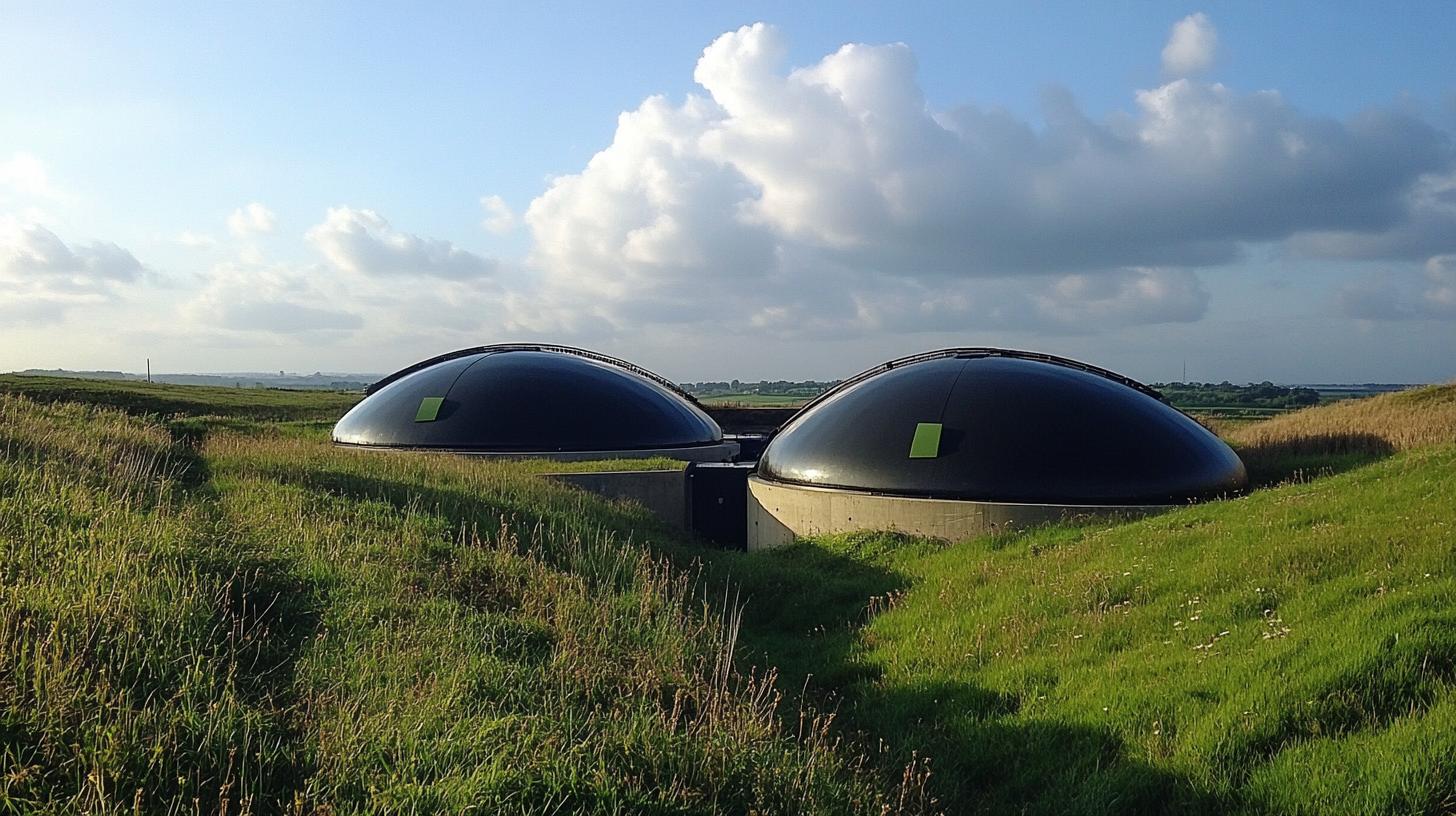The UK is taking significant strides in renewable energy innovation with the launch of a groundbreaking project to convert grass into biogas. Spearheaded by Wärtsilä, a leader in sustainable energy solutions, this initiative aims to transform agricultural by-products into a green gas, providing a crucial step forward in the country’s shift away from fossil fuels.
Introducing the Green Gas Mill, a revolutionary energy facility located in the UK, leveraging Wärtsilä’s advanced Puregas CA50 technology to convert grass into biogas for home heating and beyond. Scheduled to start operations in 2023, this pioneering plant is set to become a model for future projects, highlighting grass’s potential as a unique, renewable energy source.
One significant advantage of the Green Gas Mill is the seamless integration with existing infrastructure. UK households can continue using their current gas appliances, benefiting from a cleaner fuel option. This transition reduces fossil fuel dependence while supporting local economic development and resource usage, exemplifying a circular economy where waste is minimized, and energy resources are optimized.
Biogas offers flexibility in the renewable energy landscape, complementing sources like solar and wind. It ensures a consistent energy supply, balancing the grid and aiding in carbon emission reduction. As the UK works towards its net-zero ambitions, such projects are vital for empowering communities and decentralizing energy sources.
Beyond energy production, the Green Gas Mill contributes to environmental conservation and economic growth. By utilizing grasses for biogas, methane emissions are curtailed, and new job opportunities arise in sustainable land management. This initiative aligns with the UK’s broader environmental objectives, aiming to significantly reduce greenhouse gas emissions by 2050.
Serving as a global model, the UK’s innovative approach showcases how local resources can be harnessed for sustainable energy transformation. The Green Gas Mill project underscores the potential of creative thinking in addressing climate change, inspiring worldwide adoption of similar environmentally friendly strategies.
The Rise of Biogas: Transforming Agricultural By-Products Into Green Energy
As global efforts to combat climate change intensify, countries are exploring innovative solutions to minimize reliance on fossil fuels. One promising development is the conversion of agricultural by-products, such as grass, into biogas. This groundbreaking approach has the potential to revolutionize energy production and significantly impact the lives of people, communities, and nations worldwide.
The Process of Turning Grass into Biogas
At the heart of this transformation is the technology to convert grass and other biomass into biogas, a renewable energy source. This is done through anaerobic digestion, where microorganisms break down organic matter without oxygen, yielding biogas primarily composed of methane and carbon dioxide. The resultant gas can be used for electricity generation, heating, and even as a vehicle fuel, marking a critical step in diversifying energy sources away from traditional hydrocarbons.
Implications for Local Communities
For many rural communities, particularly those heavily reliant on agriculture, the shift to biogas production presents a promising opportunity for economic revitalization. As demand for raw materials like grass increases, farmers could find a new revenue stream, thus reducing waste and enhancing agricultural sustainability. This transition could foster community-based energy solutions, empowering residents with energy independence and contributing to local job creation in biogas plant operations and sustainable land management.
Environmental Benefits and Challenges
Turning grass into energy not only supports a reduction in fossil fuel usage but also diminishes methane emissions from decomposing grasses. This contributes to environmental conservation by mitigating one of the potent greenhouse gases. However, widespread implementation comes with challenges, including ensuring adequate supply chains and maintaining soil health. There is also a need for policies to balance food production with energy crop cultivation to avoid potential land-use conflicts.
Global Influence and Opportunities
The UK’s Green Gas Mill serves as an inspirative model that can be replicated globally. By utilizing technology to harness local resources, other countries, particularly those with vast agricultural landscapes, can embark on similar projects to meet their energy demands sustainably. Wärtsilä, for example, is a pivotal player in the biogas arena, providing advanced technologies for renewable energy solutions, proving the feasibility of integrating biogas into existing infrastructures.
This shift also fosters international cooperation and knowledge sharing, potentially leading to global advancements in renewable energy technologies. With climate change affecting diverse regions differently, such solutions could offer tailored responses to local environmental challenges while contributing to a unified global objective of reducing carbon footprints.
Controversies and Future Outlook
Despite the numerous advantages, the shift to biogas from grass is not without controversy. Critics argue that dedicating large tracts of land to energy crops could affect food security. There’s also the risk of monocultures, which could impact biodiversity. Nevertheless, continued innovation and effective policy frameworks are essential to addressing these issues, ensuring that this renewable energy solution benefits both people and the planet.
In conclusion, the conversion of grass into biogas is a promising energy innovation poised to make significant impacts on communities and countries. With the right strategies, it could be a catalyst for sustainable development, driving economic growth, environmental conservation, and energy transformation worldwide.














